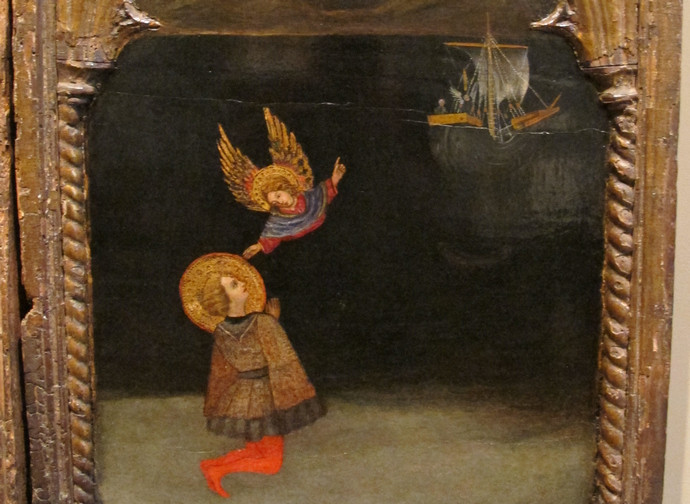Saint Elpidius (abbot)
We do not know much about the life of Saint Elpidius (4th century). A disciple of St John Chrysostom speaks of him. Elpidius was originally from Cappadocia and had lived for 25 years as an anchorite in the caves near Jericho, natural shelters for various other men eager to dedicate themselves to the contemplation of God

His name comes from the Greek Elpidios (from elpis, “hope”) and can be translated as “full of hope”. We do not know much about the life of Saint Elpidius (4th century). A disciple of St John Chrysostom speaks of him, i.e. the monk and bishop Palladius of Galatia (c. 363-420), who in his Lausiac History reports that Elpidius was originally from Cappadocia and had lived for 25 years as an anchorite in the caves near Jericho, natural shelters for various other men eager to dedicate themselves to the contemplation of God.
Palladius himself writes that he lived in those caves next to the saint, who showed such self-discipline in his asceticism “that he put everyone else in shadow”. He took food only on Saturdays and Sundays, and he would spend the night standing up and singing Psalms. One night, in the company of Palladius and the other hermits, he was stung by a scorpion as he was praying, but he ignored the pain, trampled the animal underfoot and remained standing, continuing to sing to God.
In his company Aenesius and his brother Eustathius reached perfection, as did a disciple named Sisinnius. According to the Lausiac History, St Elpidius died in one of the caves near Jericho. Some believe that he may have left the Holy Land at some point and reached Italy. In any case, his relics were kept since the first millennium in the Marches and are still preserved today in a Roman sarcophagus made of Parian marble, dating back to the 4th century, inside the church dedicated to him in the municipality of Sant'Elpidio a Mare.
